
Some of my favorite comments you wrote about Shakespeare:
“I once got knocked out by being slammed on my head. Compared to Shakespeare, getting knocked out is fun. At least it is quicker.”
“I think Shakespeare is pretty freaking cool, even though sometimes it can be hella hard to translate.”
“His works are a vile thing, equivalent to castration and fingernail-bamboo torture.”
“I bite my thumb at Shakespeare.”
“In every play he kills almost everyone. IN EVERY PLAY. I can’t. I can’t even.”
“Let’s begin with the spelling of his name. It irritates me.”
“Shakespeare is my dog.”
“Shakespeare…to hate him or not to hate him…”
“I’ve always disliked any book that is older than me.”
“I don’t hate Shakespeare. I just don’t understand what he is saying.”
“I absolutely adore the Bard of Avon!”
“He’s a pretty cool guy I guess. His hair is ugly tho. He got MAD CLOUT.”
“OMG I love Shakespeare because of his plots and how it relates to us but that language? Oh no no honey!”
“I like that Shakespeare is Sex, Love, Death. But he has to be extra with his writing.”
“I think reading Shakespeare is like being suffocated with a pillow. I dislike the topics, the vocabulary, and the confusing names—”Mustardseed”? What is that??
“People say Shakespeare is a classic, a legend of the arts, a genius, can never be compared to, he is credited with some of the greatest works of all time, like Biggie.”
“I’ve been told many times that I was going to study Shakespeare. Never have I actually done that. Why? Because whenever it comes to that time, I stop paying attention.”
“Just stop with all of the ‘thou’ and ‘O’ stuff. But I guess it’s just a style, so you keep doing you, man. Shakespeare –> 7/10”
“I feel that people like him because of his name, like identical off-brand shoes to Nike.”
“I’m not a fan of ye olde English because it makes my brain melt out of my ears, but I haven’t read enough Willy to pass an unbiased judgment of him and his work. XOth XOth, Ye Olde Gossip Girl.”
“I’m not in love with him, but I don’t cringe at his name either.”
“When I hear the word ‘Shakespeare,’ I feel like imitating Romeo and killing myself. I also have the burning desire to have Macbeth’s fate (decapitation). I also feel like having the same ending as Julius Caesar: being stabbed thirteen times in the back.”
“Shakespeare and I have a hate-love relationship. I love his work, but the way he writes irks me with a raging passion.”
“So usually when I receive a Shakespeare play to read, I never read it because I feel stupid just trying.”
“Freaked out. Can’t understand. Grade will drop. I do like his stories when I understand them tho.”
“He’s super awesome, he lives up to the hype that surrounds his name. His works are the base of what many other works are written on.”
“Why does everything have to include something sad or love? Why can’t we read about trees or something when it comes to you? Why do I have to think twice as hard to figure out what you’re trying to say? GIVE ME A BREAK, SHAKESPEARE.”
“Meh. He’s chill, not for or against, but he’s for sure overhyped. Meh.”
“You want to know what I think about Shakespeare? You REALLY want to know? ¯\_(ツ)_/¯ ”
“Raw. Sexual. Ladies’ man. Hat with feather. Poet. Playwright.”


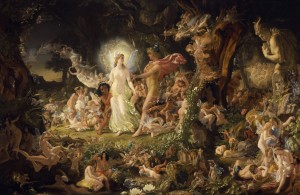

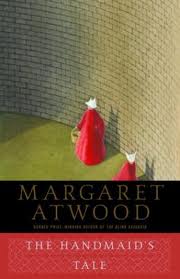
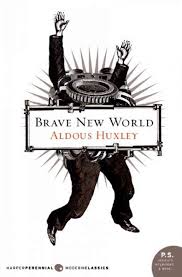
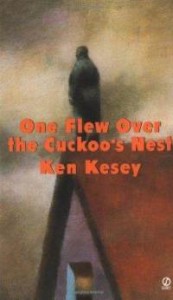
 I HAVE two babies; I hope they may never know how warmly at this moment I hate them. I have a husband; we were married because we were very much in love-and him I hate too. I have a large stock of relatives, and them I hate with the heart and should hate with the hand if I had not the misfortune to be well brought up. This emotion of mine, especially in connection with my spouse and offspring, is, up to the present, local and temporary; indeed I think it will not grow into a permanent hatred, but will gradually assume two peculiar forms: toward my children a passionate and slavish devotion, which will make me resent my daughters-in-law; and toward my husband regards, reasonably kind, which will be reciprocated. My feeling toward my relatives, on the other hand, is becoming quite, quite fixed.
I HAVE two babies; I hope they may never know how warmly at this moment I hate them. I have a husband; we were married because we were very much in love-and him I hate too. I have a large stock of relatives, and them I hate with the heart and should hate with the hand if I had not the misfortune to be well brought up. This emotion of mine, especially in connection with my spouse and offspring, is, up to the present, local and temporary; indeed I think it will not grow into a permanent hatred, but will gradually assume two peculiar forms: toward my children a passionate and slavish devotion, which will make me resent my daughters-in-law; and toward my husband regards, reasonably kind, which will be reciprocated. My feeling toward my relatives, on the other hand, is becoming quite, quite fixed.
 The truth is, however, that it is not a floor-scrubber and dishwasher that I desire. I could get along with that work or leave it happily undone. It is the care of two children under three that concerns me. It is unremitting and nerve-tearing, and the day in and day out of it is under mining mercilessly my ability to be lovable and to love. Furthermore, I have not the qualifications that would justify entrusting me with sole responsibility for the growth of human beings. Maternal instinct I have in normal amount; I could be trusted to rescue my infants from a burning building, but that is a very different matter from knowing what to do with twenty-four hours’ worth of bodily and mental development every day. I do not want a nursemaid; I have no training for my job, but I have an occasional vagrant idea, and it does not appeal to me to exchange my services to my offspring for those of a hand-maiden with neither training nor ideas. The helper for me should be a trained psychologist, a child-lover, to be sure, but a child-lover with expert knowledge of the needs of growing minds. She should have also training in the treatment of the smaller physical ailments of children. She ought to cost me two thousand dollars a year, but in the present state of women’s wages I have no doubt I could get her for a thousand. And I want her only half the day-five hundred dollars. Our income is sixteen hundred.
The truth is, however, that it is not a floor-scrubber and dishwasher that I desire. I could get along with that work or leave it happily undone. It is the care of two children under three that concerns me. It is unremitting and nerve-tearing, and the day in and day out of it is under mining mercilessly my ability to be lovable and to love. Furthermore, I have not the qualifications that would justify entrusting me with sole responsibility for the growth of human beings. Maternal instinct I have in normal amount; I could be trusted to rescue my infants from a burning building, but that is a very different matter from knowing what to do with twenty-four hours’ worth of bodily and mental development every day. I do not want a nursemaid; I have no training for my job, but I have an occasional vagrant idea, and it does not appeal to me to exchange my services to my offspring for those of a hand-maiden with neither training nor ideas. The helper for me should be a trained psychologist, a child-lover, to be sure, but a child-lover with expert knowledge of the needs of growing minds. She should have also training in the treatment of the smaller physical ailments of children. She ought to cost me two thousand dollars a year, but in the present state of women’s wages I have no doubt I could get her for a thousand. And I want her only half the day-five hundred dollars. Our income is sixteen hundred.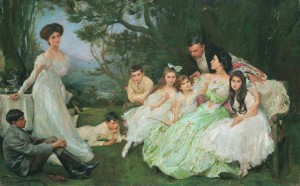
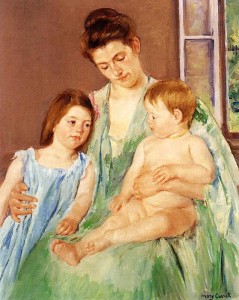
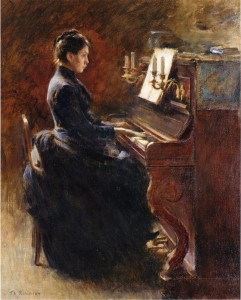
Shakespeare: Let It All Out
Some of my favorite comments you wrote about Shakespeare:
“I once got knocked out by being slammed on my head. Compared to Shakespeare, getting knocked out is fun. At least it is quicker.”
“I think Shakespeare is pretty freaking cool, even though sometimes it can be hella hard to translate.”
“His works are a vile thing, equivalent to castration and fingernail-bamboo torture.”
“I bite my thumb at Shakespeare.”
“In every play he kills almost everyone. IN EVERY PLAY. I can’t. I can’t even.”
“Let’s begin with the spelling of his name. It irritates me.”
“Shakespeare is my dog.”
“Shakespeare…to hate him or not to hate him…”
“I’ve always disliked any book that is older than me.”
“I don’t hate Shakespeare. I just don’t understand what he is saying.”
“I absolutely adore the Bard of Avon!”
“He’s a pretty cool guy I guess. His hair is ugly tho. He got MAD CLOUT.”
“OMG I love Shakespeare because of his plots and how it relates to us but that language? Oh no no honey!”
“I like that Shakespeare is Sex, Love, Death. But he has to be extra with his writing.”
“I think reading Shakespeare is like being suffocated with a pillow. I dislike the topics, the vocabulary, and the confusing names—”Mustardseed”? What is that??
“People say Shakespeare is a classic, a legend of the arts, a genius, can never be compared to, he is credited with some of the greatest works of all time, like Biggie.”
“I’ve been told many times that I was going to study Shakespeare. Never have I actually done that. Why? Because whenever it comes to that time, I stop paying attention.”
“Just stop with all of the ‘thou’ and ‘O’ stuff. But I guess it’s just a style, so you keep doing you, man. Shakespeare –> 7/10”
“I feel that people like him because of his name, like identical off-brand shoes to Nike.”
“I’m not a fan of ye olde English because it makes my brain melt out of my ears, but I haven’t read enough Willy to pass an unbiased judgment of him and his work. XOth XOth, Ye Olde Gossip Girl.”
“I’m not in love with him, but I don’t cringe at his name either.”
“When I hear the word ‘Shakespeare,’ I feel like imitating Romeo and killing myself. I also have the burning desire to have Macbeth’s fate (decapitation). I also feel like having the same ending as Julius Caesar: being stabbed thirteen times in the back.”
“Shakespeare and I have a hate-love relationship. I love his work, but the way he writes irks me with a raging passion.”
“So usually when I receive a Shakespeare play to read, I never read it because I feel stupid just trying.”
“Freaked out. Can’t understand. Grade will drop. I do like his stories when I understand them tho.”
“He’s super awesome, he lives up to the hype that surrounds his name. His works are the base of what many other works are written on.”
“Why does everything have to include something sad or love? Why can’t we read about trees or something when it comes to you? Why do I have to think twice as hard to figure out what you’re trying to say? GIVE ME A BREAK, SHAKESPEARE.”
“Meh. He’s chill, not for or against, but he’s for sure overhyped. Meh.”
“You want to know what I think about Shakespeare? You REALLY want to know? ¯\_(ツ)_/¯ ”
“Raw. Sexual. Ladies’ man. Hat with feather. Poet. Playwright.”
Comments Off on Shakespeare: Let It All Out
Filed under AP Literature
Tagged as AP, authors, commentary, Shakespeare